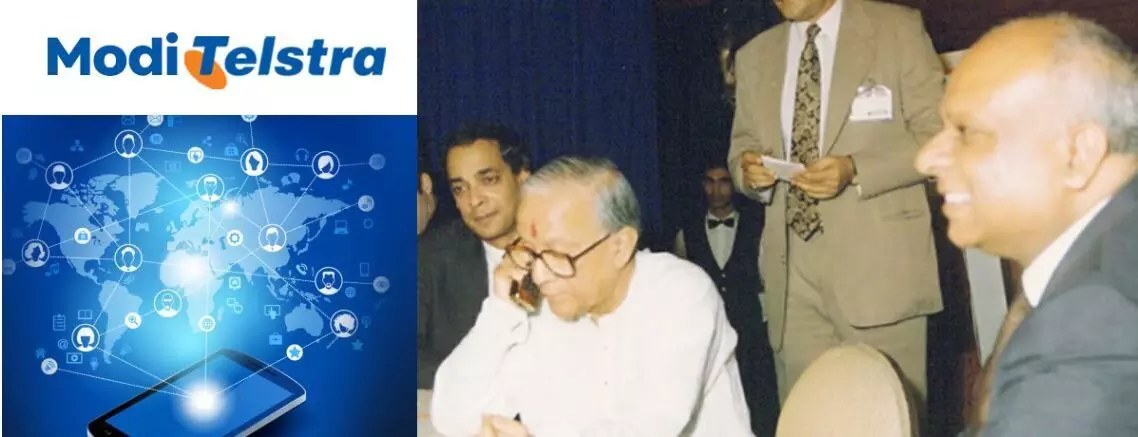Not Airtel, Not Reliance - The Unsung Hero: Modi Telstra, India's Early Private mobile telephony
The inception of mobile telephony in India can be traced back to the early 1990s when the government opened up the telecommunications sector to private players.
image for illustrative purpose

The inception of mobile telephony in India can be traced back to the early 1990s when the government opened up the telecommunications sector to private players. Until then, telecommunications were primarily controlled by the state-owned Bharat Sanchar Nigam Limited (BSNL) and Mahanagar Telephone Nigam Limited (MTNL). The liberalization of the sector paved the way for private telecom companies to enter the Indian market and offer cellular services.
The First Mobile Phone Company in India
The distinction of introducing the first mobile phone in India goes to Modi Telstra, a joint venture between India's Modi Group and Telstra Corporation Limited, an Australian telecommunications giant. Established in 1995, Modi Telstra was among the first private telecom operators to enter the Indian market.
Modi Telstra's foray into mobile telephony was a significant milestone in India's telecom history. The company played a pioneering role in setting up the infrastructure and launching cellular services in the country. Their efforts were instrumental in bringing mobile communication within reach of millions of Indians.
The Network and Technological Advancements
Modi Telstra's mobile services were launched under the brand name 'Modi Telstra Mobile.' The network utilized the Global System for Mobile Communications (GSM) technology, which was considered a cutting-edge standard for mobile communications at the time. GSM offered superior voice quality and better coverage compared to the existing analog systems.
One of the noteworthy features of the GSM network was its compatibility with international standards. This meant that Indian mobile phone users could communicate seamlessly with users in other countries that adopted the GSM standard. This was a game-changer for businesses and individuals engaged in international communication.
The GSM network also supported Short Message Service (SMS), which eventually became immensely popular and changed the way people communicated. SMS allowed users to send text messages quickly and affordably, further enhancing the appeal of mobile phones.
Impact and Significance
The launch of mobile phones by Modi Telstra and the subsequent expansion of mobile services by other private players revolutionized the way Indians communicated. Mobile phones were no longer considered luxury items but rather became essential tools for business, personal communication, and even emergencies. They bridged geographical distances, connected people in remote areas, and facilitated the rapid dissemination of information.
The availability of mobile phones spurred economic growth and innovation. It led to the emergence of a thriving mobile phone manufacturing industry in India, creating jobs and contributing to the country's economic development.
Furthermore, the mobile phone became a catalyst for financial inclusion. Mobile banking and payment services, which are now ubiquitous in India, gained prominence, empowering individuals in remote areas to access financial services conveniently.
The introduction of the first mobile phone in India by Modi Telstra, along with the subsequent expansion of mobile services, marked a significant milestone in the country's technological evolution. It not only transformed the way Indians communicated but also had far-reaching implications for business, society, and the economy.
Today, India boasts one of the world's largest and most dynamic telecommunications markets, with millions of mobile phone users. This transformation from a single mobile phone by Modi Telstra to a thriving, digitally connected nation is a testament to the power of innovation and the impact of technology on society. The first mobile phone in India was not just a device; it was the harbinger of a digital revolution that continues to shape India's future.

